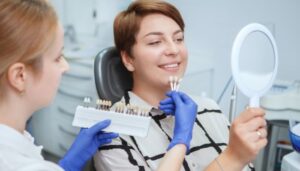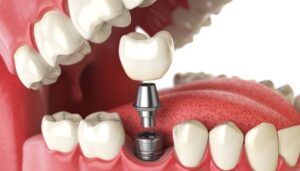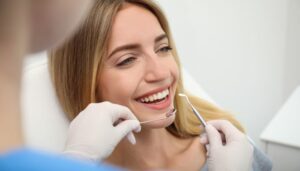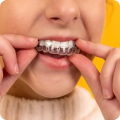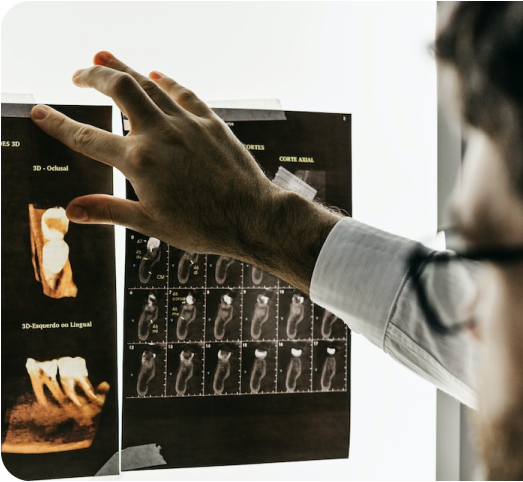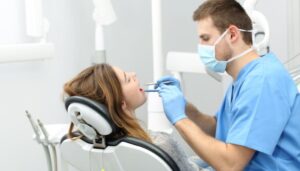
Why Regular Dental Checkups Matter: Visit a Trusted Dentist in Lewisville
Taking care of your teeth is more than just brushing and flossing at home. Regular dental checkups play a crucial role in preventing oral health issues, detecting problems early, and maintaining a beautiful smile. If you’re looking for a trusted dentist in Lewisville TX, understanding the benefits of routine visits can help you stay proactive about your dental health. In this guide, we’ll explore why regular dental checkups matter, what to expect during a visit, and how to find the best dentists in Lewisville TX for your needs. Why Are Regular Dental Checkups Important? Many people only visit the dentist when they experience pain, discomfort, or an emergency, but preventive care is key to avoiding major dental problems. Here’s why routine visits to a dentist in Lewisville are essential: 1. Prevents Cavities and Tooth Decay Even with proper brushing and flossing, plaque and tartar can build up over time, leading to cavities. Professional cleanings remove stubborn plaque and help prevent decay, reducing the risk of painful dental issues. 2. Detects Gum Disease Early Gum disease, also known as periodontal disease, starts with mild symptoms like redness and swelling but can progress to tooth loss if left untreated. Regular dental visits help catch gum disease early, allowing for timely treatment. 3. Identifies Dental Issues Before They Worsen Routine checkups help detect problems like cracked teeth, infections, or misalignment before they become serious. Early detection means less invasive and more affordable treatments. 4. Maintains Fresh Breath & White Teeth Tartar buildup, food particles, and bacteria can cause bad breath and tooth discoloration. A professional cleaning during a dental checkup in Lewisville TX removes stains and freshens your breath. 5. Helps with Overall Health Your oral health is connected to your overall well-being. Studies show that conditions like heart disease, diabetes, and even Alzheimer’s are linked to oral health. Regular dental visits help reduce these risks by keeping your gums and teeth healthy. What to Expect During a Dental Checkup in Lewisville TX When you visit a dentist in Lewisville TX, your checkup typically includes: ✔ Comprehensive Oral Exam – The dentist checks your teeth, gums, and mouth for any signs of cavities, gum disease, or other issues.✔ X-Rays (If Needed) – X-rays help detect hidden problems like bone loss, impacted teeth, or deep cavities.✔ Professional Cleaning – A hygienist removes plaque, tartar, and stains to leave your teeth clean and polished.✔ Oral Cancer Screening – Dentists also check for signs of oral cancer, ensuring early detection.✔ Personalized Advice – Your dentist will provide guidance on brushing, flossing, and diet choices to maintain optimal oral health. Most dentists in Lewisville TX recommend a checkup every six months, but if you have gum disease or other concerns, more frequent visits may be necessary. How to Find the Best Dentist in Lewisville Choosing the right dentist in Lewisville is important for a comfortable and stress-free experience. Here are a few tips to help you find the best dental care: 1. Look for Experience & Credentials A good dentist should have years of experience and proper certifications. Look for licensed professionals with a strong reputation in the community. 2. Read Patient Reviews Check online reviews on Google, Yelp, or social media to see what other patients say about dentists in Lewisville TX. Positive testimonials can give you confidence in your choice. 3. Consider the Services Offered Whether you need general dentistry, cosmetic procedures, orthodontics, or emergency care, make sure the dental clinic provides the services you need. 4. Ask About Insurance & Payment Options Not all dental offices accept the same insurance plans. Before booking an appointment, verify if your dentist in Lewisville TX takes your insurance or offers flexible payment plans. 5. Visit the Office for a Consultation If you’re unsure, schedule a consultation to meet the dentist and staff. A friendly, welcoming environment makes dental visits more comfortable. Final Thoughts: Don’t Skip Your Dental Checkups! Regular visits to a dentist in Lewisville are essential for preventing dental problems, maintaining a bright smile, and ensuring overall health. By scheduling checkups every six months, you can avoid costly and painful procedures in the future. Looking for a trusted dentist in Lewisville TX? Start by researching experienced dentists in Lewisville TX and book your appointment today for a healthier, happier smile!
